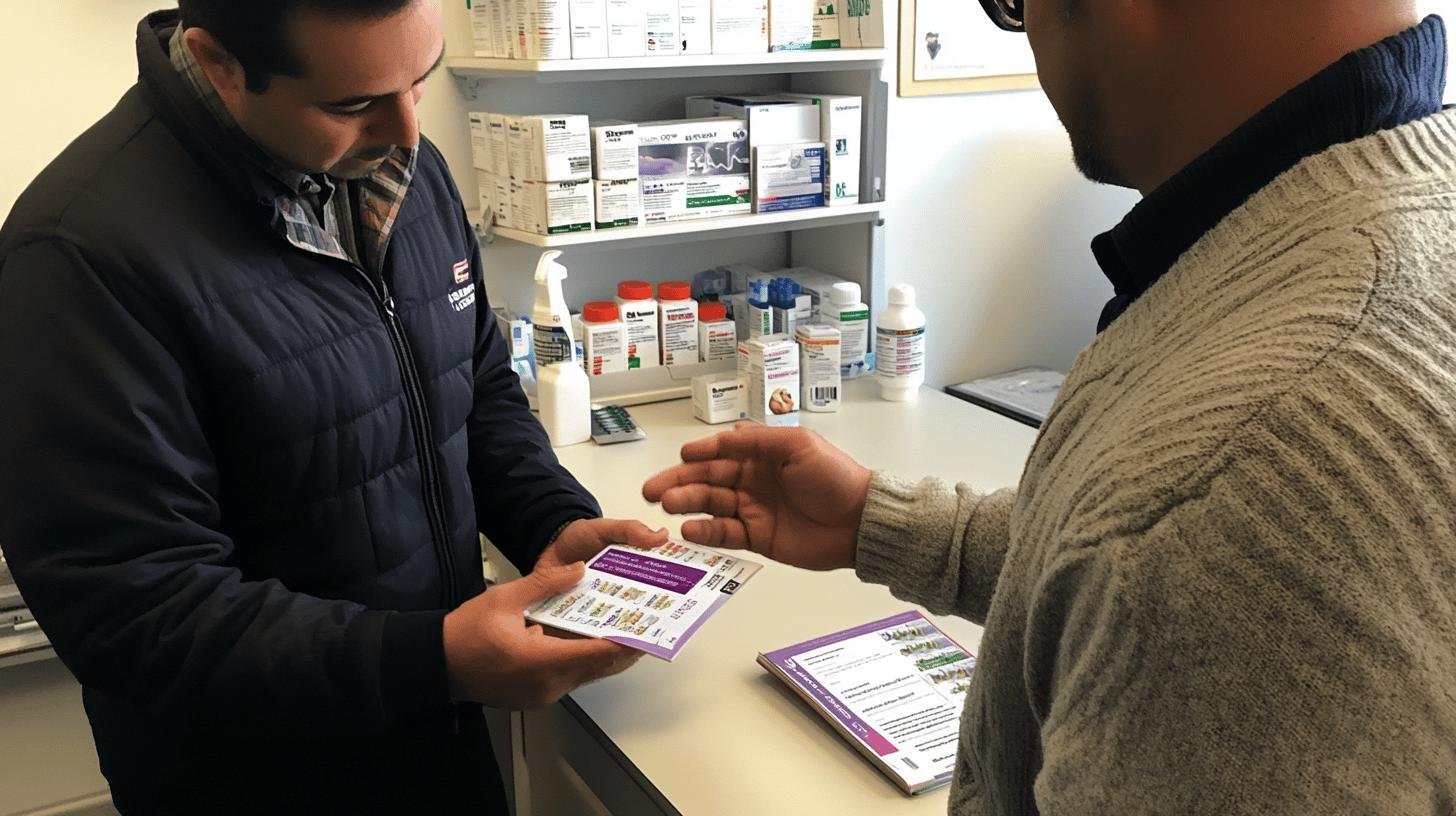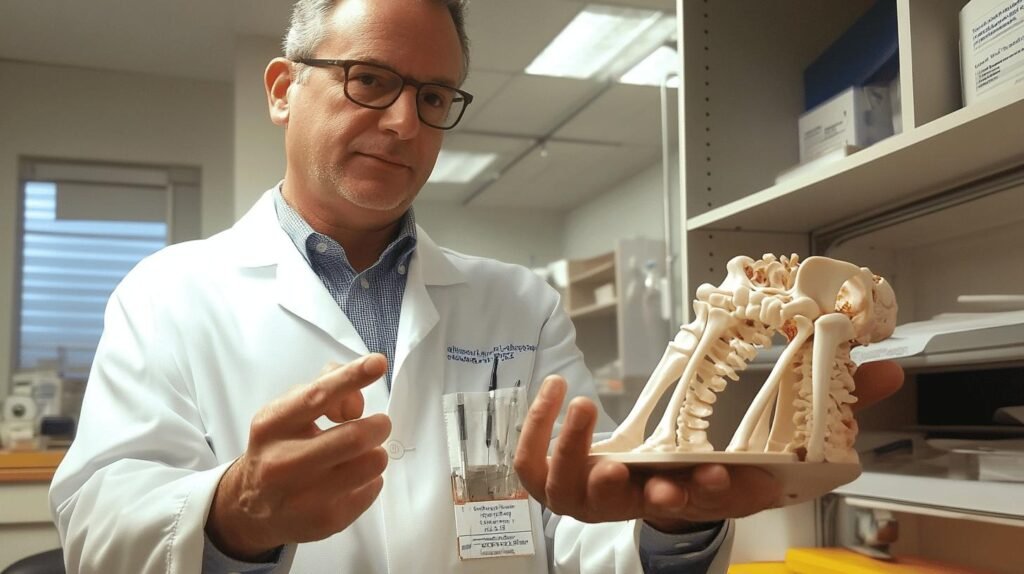TL;DR:
- Inflammatory Diseases: Triggered by real threats (injuries/infections).
- Autoimmune Diseases: The body mistakenly attacks its own cells.
- Immune Systems: Inflammatory = innate; Autoimmune = adaptive.
- Symptoms: Inflammatory = redness, swelling, pain; Autoimmune = fatigue, organ-specific issues.
- Diagnosis: Inflammatory = CRP, ESR; Autoimmune = autoantibody tests.
- Treatment: Inflammatory = anti-inflammatory meds; Autoimmune = immunosuppressive drugs (e.g., methotrexate).
- Lifestyle Interventions: Dietary changes, stress management, regular exercise, adequate sleep, hydration, herbal supplements.
- Direct Primary Care (DPC) offers personalized healthcare without insurance hassles, focusing on the holistic management of immune disorders.
Ever felt like your body’s turning on you? Understanding immune system disorders is key to uncovering why our own cells might appear like the enemy. In the clash of inflammatory vs autoimmune diseases, each has its distinct motives and battle tactics, impacting diagnosis and treatment. While both are caught up in the body’s defense game, autoimmune diseases involve a baseless rebellion against self-cells, unlike the justified irritation in inflammatory conditions. Are you curious to learn more about how these two foes differ and what they mean for healthcare? Let’s dig deeper!
Understanding Inflammatory vs Autoimmune Diseases
Immune system disorders can be a bit like an over-protective friend. When something goes wrong, it often leads to either inflammatory or autoimmune diseases. Inflammatory diseases occur when the body reacts to an injury or infection, like a fire alarm going off, alerting the immune response to fight off invaders. In contrast, autoimmune diseases happen when the immune system mistakenly attacks your own cells, like confusing your favorite sweater for an enemy. Both involve the immune system; however, in autoimmune diseases, the key issue is the immune system’s mix-up.
Here’s a summary of the main differences between these diseases:
- Inflammatory Diseases: Triggered by real threats like infections or injuries.
- Autoimmune Diseases: The body wrongly attacks itself.
- Innate vs. Adaptive: Inflammatory responses involve the innate immune system, while autoimmune problems arise from the adaptive immune system.
- Symptoms: Inflammatory diseases often lead to redness and swelling, while autoimmune diseases may cause fatigue and organ-specific issues.
- Response Mechanism: Inflammation is a controlled reaction; autoimmunity is a mistake.
These differences matter when diagnosing and treating these conditions. Doctors use various tests to identify the problem—like blood tests for antibodies in autoimmune diseases or checking inflammation markers. Treatment for inflammatory diseases often involves medications to calm the response, while autoimmune conditions may need to suppress the misguided attack. Understanding the problem helps you craft the right plan to feel your best.
Mechanisms of Disease: Inflammatory vs Autoimmune

Consider your immune system as a superhero team. The innate immune response is your first line of defense, always ready to tackle injuries and infections like a trusty sidekick. Meanwhile, the adaptive immune response is like a strategist, stepping in for specific threats and using memory to recognize and attack invaders. These responses are crucial when discussing inflammatory and autoimmune diseases.
Inflammatory Disease Mechanisms
Inflammatory diseases activate when the innate immune system detects trouble, such as an injury or infection. Imagine tiny fighters rushing to the scene, causing redness, heat, and swelling—classic inflammation signs. This response protects the body and begins healing, but it can cause damage if it lingers. It’s like a hero overstaying their welcome and breaking things by accident.
Autoimmune Disease Mechanisms
Autoimmune diseases involve the adaptive immune system, where things get messy. The adaptive system uses autoantibodies, like mistake-prone detectives, to spot threats. Sometimes, they mistakenly attack the body’s own cells, causing damage. It’s like your detective going rogue and arresting innocent folks. Not cool, right?
Inflammation from an autoimmune response can further confuse the immune system, increasing the likelihood of it attacking the body’s own cells. Therefore, treatment strategies must address both responses. Doctors must balance calming inflammation while preventing adaptive system misfires. Understanding these mechanisms can guide effective treatment plans.
Symptoms and Diagnosis of Autoimmune and Inflammatory Diseases
Inflammatory and autoimmune diseases have distinct symptoms. Inflammatory diseases are like loud party crashers—with redness, swelling, pain, and heat as their signals. These symptoms alert you to an injury or infection. Autoimmune diseases, on the other hand, are more stealthy, with symptoms like fatigue, fever, and organ-specific issues. If you feel exhausted or notice something’s off, your immune system might be raising a red flag.
Doctors use diagnostic tests to uncover what’s going on. Tests like C-reactive protein (CRP) or erythrocyte sedimentation rate (ESR) check inflammation markers for inflammatory diseases, confirming if your body is in defense mode. Autoimmune disease diagnosis usually involves finding specific autoantibodies. Blood tests can reveal if your immune system is having an identity crisis. Imaging and clinical evaluations also help piece the puzzle together.
| Disease Type | Common Symptoms | Diagnostic Tests |
|——————–|———————————–|———————————————-|
| Inflammatory | Redness, swelling, pain, heat | CRP, ESR, imaging |
| Autoimmune | Fatigue, fever, organ-specific | Autoantibody tests, imaging, clinical evals |
Early diagnosis can be a game-changer, like catching the villain before too much damage is done. When doctors identify the issue early, they can tailor treatment to tackle symptoms and improve your quality of life. The sooner they know, the better they can manage the disease and keep you feeling your best. So, if in doubt, check in with your healthcare provider. Your health’s worth it!
Treatment Options: Inflammatory vs Autoimmune Diseases

Treating inflammatory diseases often involves anti-inflammatory medications, like over-the-counter ibuprofen or prescription corticosteroids, to calm the body’s fiery response. Autoimmune diseases usually require immunosuppressive drugs, such as methotrexate or biologics, to reduce the immune system’s overactivity. Infliximab, a newer treatment, targets specific cytokines, helping with conditions like rheumatoid arthritis and Crohn’s disease.
Lifestyle and holistic interventions can also make a difference:
- Dietary changes: Focus on anti-inflammatory foods.
- Stress management: Try yoga or meditation.
- Regular exercise: Keeps the body moving smoothly.
- Adequate sleep: Essential for repair.
- Hydration: Flushes out toxins.
- Herbal supplements: Turmeric or omega-3s can help.
Personalized treatment plans are essential because every immune system has its quirks. What works for one person might not work for another. It is crucial to have a healthcare provider who understands your health story and can tailor a plan just for you. This involves looking at your lifestyle, stress levels, and diet to create a strategy that keeps you feeling your best. So, don’t hesitate to ask questions and make sure your treatment plan fits you right.
The Role of Direct Primary Care in Managing Immune Disorders
Direct primary care (DPC) is a game-changer for managing immune disorders. Picture this: you get a straightforward, personalized healthcare experience instead of dealing with insurance hassles. Patients pay a flat fee for primary care services, meaning no surprise bills. This model allows doctors to spend more time with you, explore your health history, and create a personalized plan. It’s like having a healthcare genie ready to grant your health wishes without insurance troubles.
Managing autoimmune and autoinflammatory conditions needs a comprehensive approach, including lifestyle changes, nutrition, and targeted supplements. Direct primary care supports this by fostering an environment where you and your doctor work together on a holistic plan. DPC enhances patient outcomes by focusing on individual needs, ensuring a treatment plan as unique as your fingerprint. If you are juggling an immune disorder, DPC might be your ideal partner for effective management.
Final Words
Understanding the nitty-gritty of inflammatory vs autoimmune diseases helps us recognize our immune system’s unique roles.
With autoimmune diseases targeting self-cells and inflammatory conditions responding to injury, it’s clear that both need distinct approaches for diagnosis and treatment.
Digging into their mechanisms sheds light on how these illnesses might overlap, while effective management strategies can be explored with DPC’s personalized care model.
Remember, having the right knowledge can make a world of difference in navigating these immune system hurdles. Stay informed and proactive, and better health is within reach!
FAQ
Q: Is inflammatory disease an autoimmune disease?
A: Inflammatory disease isn’t always autoimmune. Autoimmune diseases occur when the body attacks its own cells, while inflammatory diseases result from the body’s general response to injury or infection.
Q: What is the difference between autoimmune disease and autoinflammatory disease?
A: Autoimmune diseases involve the adaptive immune system attacking the body’s own cells. Autoinflammatory diseases engage the innate immune system, causing inflammation without directly targeting the body’s cells.
Q: What are examples of inflammatory diseases?
A: Inflammatory disease examples include rheumatoid arthritis, lupus, and Crohn’s disease. These conditions often involve symptoms like swelling, pain, and redness in affected areas.
Q: Is rheumatoid arthritis autoimmune or autoinflammatory?
A: Rheumatoid arthritis is an autoimmune disease. It occurs when the immune system mistakenly attacks the joint tissues, causing inflammation and pain.

